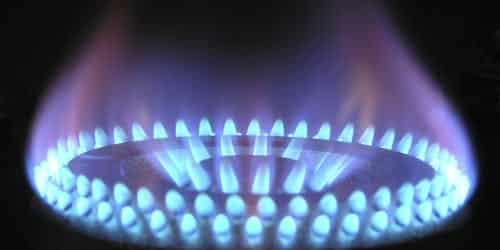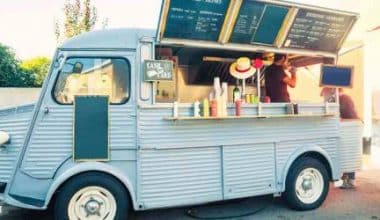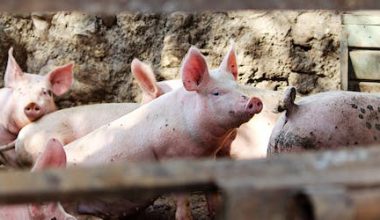It is encouraging that more Nigerians are starting to use cooking gas for a variety of domestic cooking purposes. This will help reduce deforestation concerns, protect our natural forests, and avert potential calamities associated with desert expansion, such as erosion. The cooking gas business is quite successful, and you don’t have to break the bank to get started.
In this essay, I’ll show you how to start a cooking gas business in Nigeria and how to make a decent monthly income.
What is Cooking Gas Business
The cooking gas business is so profitable that anyone in Nigeria can start with as little as N100,000 and higher. Per bottle of gas, you can earn up to a 100% ROI (return on investment).
Depending on the size of the company, this business entails refilling gas cylinders for customers at retail or wholesale prices. Many people have delved into this business for a few years and have made a lot of money from it, particularly amid price increases or the scarcity of gas in the country.
While this business is successful owing to the consistent increase in demand for cooking gas for houses and restaurants, it is fraught with risks, so a prior understanding of gas refiling is required before venturing into the business.
However, from training to startup, a small amount of capital is required to start a cooking gas business in Nigeria.
How Much Do You Need to Start a Cooking Gas Business in Nigeria
The most popular question from those wishing to establish a cooking gas business in Nigeria is, “How much does it cost to set up a mini gas plant in Nigeria?” What is the cost of establishing a gas business in Nigeria?
The answer varies depending on the type and size of gas refilling business you wish to start.
You may start a modest gas refilling business in Nigeria for as little as N100,000. In this case, you’ll need to rent a gas cylinder (bottle) for a low cost from a distributor, fill it, and sell it at retail to the ultimate consumers.
You can establish a cooking gas business with anywhere from $8 million to $15 million in cash and on a greater scale. Here, you’ll need to build a visually appealing gas plant and sell at both retail and wholesale prices.
There is a lot of profit to be earned in the gas business, whether it is small-scale or large-scale.
How profitable is the cooking gas business in Nigeria
The cooking gas business is profitable in Nigeria, with monthly earnings of up to N300,000 possible during the first three months of operation.
However, as with any business, there are aspects to consider that can impact its profitability. It’s critical to understand that unforeseen circumstances might occasionally stymie your profit-making engine.
Consider the possibility of a gas leak or a hosepipe that bursts, resulting in some waste. In such instances, you may break even or suffer a slight loss. It’s all part of the game.
But don’t worry! These glitches can be eliminated with suitable safety measures in place and careful management, ensuring that your cooking gas refilling business remains lucrative.
So, if you’re looking for a business opportunity that will fill your pockets while also meeting a critical community need, look no further. The Nigerian cooking gas refilling business is ready to jumpstart your entrepreneurial path and drive your success.
How to Start a Profitable Cooking Gas Business in Nigeria
Starting a cooking gas business in Nigeria is simple, though the method will vary based on the type and size you seek.
The following is how to establish a gas business in Nigeria, whether you want to start small or large.
#1. Begin with a thorough market survey.
Doing appropriate market research is critical in any business you wish to establish. This will teach you more about the business, including how it operates and what to do and what not to do.
Although this post is part of your market research, take the time to conduct a comprehensive market study by approaching gas dealers in your area, establishing a business rapport, and learning how to start a business in your area from them.
They will teach you more about the business, including when to start, where to start, marketing techniques, price, and, most significantly, how to register your business so that you are not bothered by anybody when you begin.
Also, if there are gas seller groups in your area, conducting market research will help you choose who is the best.
#2. Pick the Best Approach for You
Following your market study and knowledge of the business’s do’s and don’ts, as well as the types and sizes, it is now time to examine and balance the ideal strategy.
A cooking gas business strategy is mainly dependent on your budget. For example, if you have less than 500K, the best method would be to begin as a retailer (a little gas plant) selling in modest quantities (1kg, 3kg, 6kg, 12.5kg, and so on).
With a greater capital of $5 million to $15 million, the ideal option would be to set up a regular gas plant and sell to both merchants and end users.
#3. Obtain the Required Knowledge and Training to Begin Gas Refilling
Before you begin, once you’ve decided on the best technique for you, you’ll need some real expertise with gas refills.
Because cooking gas is highly combustible, it is not a good idea to start it without any prior expertise, as most people do.
As a result, it is critical that you receive all of the necessary training, from the location of your business to how to replenish gas and even the safety standards to operate with as a gas seller.
#4. Obtain the Required Equipment
You should have learned about all of the supplies and equipment required to start a gas refilling business in Nigeria, as well as their consumption and application, via your market research and skill acquisition. Simply go ahead and acquire them.
Alternatively, continue reading to learn about all of the necessary equipment later in this post.
#5. Look for a Good Location
Unlike other businesses in the oil and gas industry, such as the engine oil business, which requires a location near a mechanic’s shop to be successful, There is no specific or required site to begin a gas business.
This is because there are gas cooker users on every street and in every neighborhood. As a result, you can establish a cooking gas business right outside your door.
However, it is preferable to opt for a densely populated area or one with no (or few) gas plants or sellers.
#6. Find a Reliable Distributor
Once you’ve found a nice location and acquired all of the necessary equipment, the next step is to locate a reputable cooking gas supplier from whom you can purchase at the lowest possible cost.
If you began as a small-scale gas seller (little gas plant), you can look for a decent large-scale gas plant from which to purchase. As a large-scale gas plant, you’ll need to discover similar-sized enterprises, establish a business partnership with them, and obtain a truck of gas to get started.
#7. Begin filling and selling cooking gas.
What remains after finding a reliable distributor is to obtain your inventory and begin selling. If you have competitors in your area, you should give discounts and make your price competitive as part of selling, even though the price of gas is similar to that of gasoline, which is usually certain or fixed for a set length of time.
If you start small, you should go out to neighbours and individuals in your region and tell them about your business and the discounts you offer, as well as promise good and satisfactory service.
As a typical gas plant, you would want to reach out to shops and offer them the best price as well as discounts in order to entice them to frequent you and become repeat clients.
#8. Obtain a permit from the Department of Petroleum Resources (DPR).
After putting everything in place and launching your cooking gas business, you must apply for and receive a DPR license. This is necessary for all gas plants, especially large-scale gas plants, to avoid frequent disruption and the potential shutdown of your business.
To learn more about the license, you can go to a DRP branch office near you or visit their website. In any case, prepare your police report, fire planning approval, state land, physical planning permit, and town planning permit.
Equipment Required to Launch a Cooking Gas Business
To start a successful gas refilling business in Nigeria, the following equipment is required.
- Gas cylinder for storing gas
- Verve screw for hosepipe
- Small start-up funds
- Extinguisher for fires
- A decent site away from any fire hazards.
The Risks of Starting a Cooking Gas Business in Nigeria
All petroleum products, as we all know, are exceedingly combustible, and cooking gas is no exception. Selling gas is riskier than selling gasoline, especially in large quantities.
You should be mindful of the following sources of flame outbursts as a gas vendor:
Leaking gas cylinders: make sure to inspect each customer’s gas cylinder before refilling it. In addition, inspect your gas tank, cylinder, or bottle on a regular basis to catch any leaks early.
Setting up a gas plant near a restaurant or anywhere else where fire is utilized should be avoided at all costs. Restaurants and panel beaters, for example, both use fire/flame, thus, placing a gas plant near them could be risky.
How to Be a Successful Cooking Gas Seller in Nigeria
Because there is a significant need for cooking gas in every state in Nigeria, it is relatively simple to become successful in the business. However, if you want to generate more money from the gas refilling business, you must go a step farther.
The following are some of the finest strategies for succeeding as a cooking gas seller:
- The location of your business: You can start a gas business anywhere there are people. However, locating your gas plant in a densely populated location will result in the greatest number of sales.
- Begin with the lowest price: To get people to know you and establish brand awareness, you’ll need to give the lowest price available right away. You can later adjust your price to compete with others, but because so many people already know you, you will still outsell your competitors.
How Much is 3 kg Gas Cylinder in Nigeria?
3-kilogram Cylinder: A small cylinder that is commonly used for portable stoves and camping. Prices can vary, but they are likely to range between $5,000 and $10,000.
Which Gas is Used for Cooking?
Liquefied petroleum gas (LPG) is the gas we use for cooking. It goes through two transformations: Change LPG is a liquid inside the cylinder that is turned to gas when it is released. B: LPG burns to generate heat.
How Many Types of Cooking Gas Are There?
Propane or natural gas are two common names for cooking gas. Both of these are extensively used for cooking and heating. Natural gas (methane) or LPG (propane and/or butane) can be used for cooking.
Conclusion
With the continual increase in cooking usage and the regular price increases, the cooking gas refilling business is a worthwhile venture.
With this essay, I hope you’ve learned more about the Nigerian cooking gas business, how it works, what to do and what to avoid, and most importantly, how to start a gas business in Nigeria with modest money and become successful.






